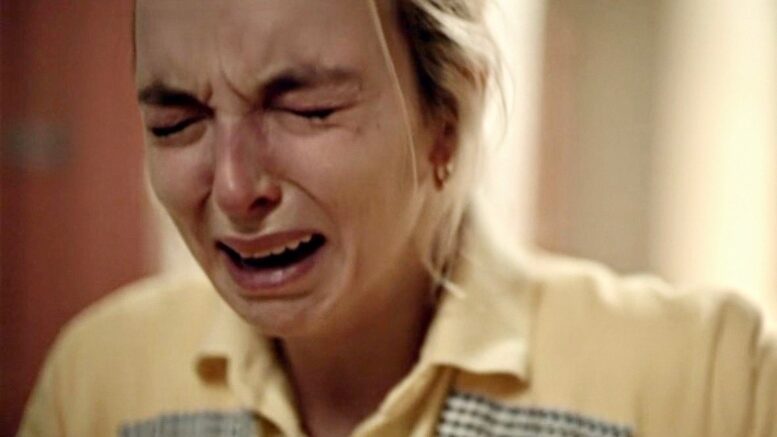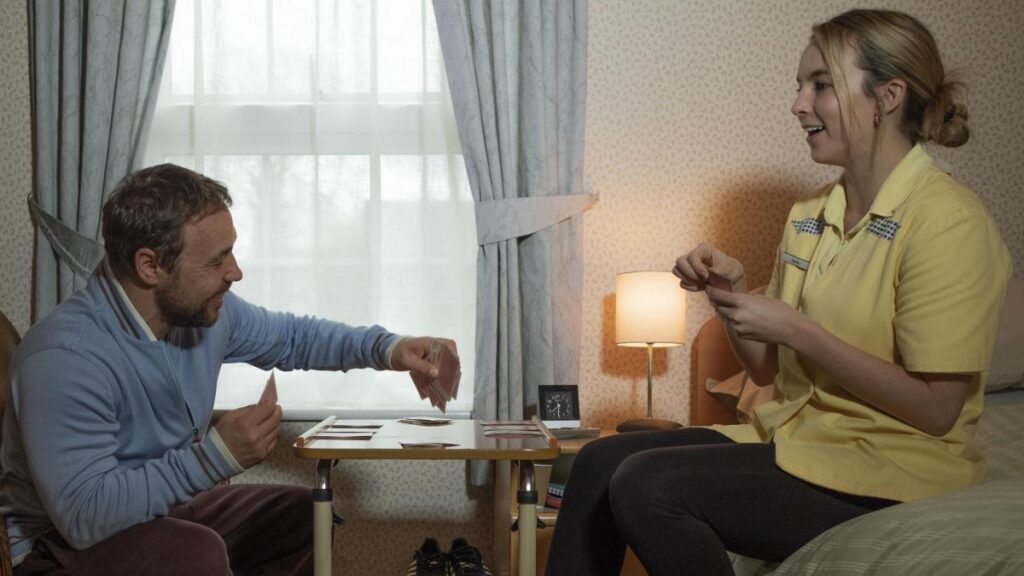♫ And now my life has changed in oh so many ways ♫
For those unfamiliar, these mesmerising lyrics belong to the hit Beatles song ‘Help!’. In such dark times as the COVID pandemic, these words seem just as relevant now.
It therefore feels fitting that Help should also be the title of Channel 4’s powerful new drama which brings together Liverpool acting royalty as well as a story that focuses on one of the most challenging times in human history.
As two of Merseyside’s biggest actors, Jodie Comer and Stephen Graham finally get the chance to sink their teeth into a project that enables them to collaborate properly after their brief yet life-changing work on Good Cop (2012).
Aided by a masterful script from BAFTA-winning writer Jack Thorne, the group have worked wonders in delivering a story that acts as a love letter to the care home community while also exposing many flaws with the government’s mishandling of the pandemic’s early impact.
At the heart of it all is Jodie’s incredible turn as Sarah, a young woman looking to overcome a failed education in order to excel herself as a care worker.
Given how used we’ve been to hearing Jodie put on various accents in the hit series Killing Eve, it’s refreshing to see her return to her own natural accent. Unlike the eccentricity of Villanelle, Sarah is a character that many can relate to, especially in the opening few minutes when she lands a job at the Bright Homes care home while wearing smudged mascara above her eyelid.
Prior to the pandemic’s imminent arrival, we see Sarah bond with various residents (including Cathy Tyson, David Hayman and Sue Johnston) while trying to hold her own against her challenging boss (an underrated Ian Hart).
However, it’s the relationship between Sarah and Alzheimer’s patient Tony that really is at the heart of this touching story. Given their off-screen relationship, it’s no surprise to see how natural the scenes between Jodie and Stephen are, as we see Sarah and Tony’s close relationship balance between sharing witty banter and his occasional violent outbursts.
It’s these moments that allow Stephen to really inhabit his character, as he struggles to recollect past memories like the death of his mother. While his work here doesn’t quite reach the heavy heights of This is England’s Combo or The Virtues’s Joseph, this is another searing performance from a man who remains on top of his game.
Returning to the story, it’s only when the pandemic hits that the horror elements of the drama soon come into effect. Like real life, there is hesitation about what the carers have to do when forced to deal with wearing masks and taking on more new residents.
This eventually leads to a nightmarish 25-minute centrepiece that allows Jodie to finally turn her performance into one for the ages. Aided by the exceptional directing of Marc Munden, the camera follows Sarah across a hellish night shift as she struggles to get hold of emergency services after a resident suffers a massive coughing fit.
It’s an unnerving and devastating sequence all done in one take that leaves you feeling as drained as Sarah does yet bluntly hits home just how difficult it was for other carers placed in that situation. A second BAFTA win surely must come Jodie’s way next year!
The aftermath of that experience leaves Sarah more and more incensed as she takes her frustrations out on those around her, including her layabout father (a welcoming appearance from Liverpool acting legend Andrew Schofield).
This culminates in the film’s final act, where our exhausted protagonist makes the drastic decision to take her new companion out of the home after he ends up on new medication. Some will scoff at this unusual change of direction, but from Sarah’s perspective, we can sympathise with her actions.
It gives us another chance to see the two characters share some lovely moments, as well as a couple of humourous jokes about football. But like the great works of Alan Bleasdale and Jimmy McGovern, the drama delivers its bittersweet ending and gives Jodie a chance to deliver a furious, anti-government monologue that would be fitting of other great working-class Liverpool characters like Yosser Hughes.
The city itself plays its own key role against the backdrop of the story, and it’s also refreshing to see Wirral at the forefront of two crucial scenes that demonstrate the powerful bond shared between Sarah and Tony.
Some may argue that it was too soon to make a drama about COVID, but Help really does shine a light on a community that didn’t get enough credit for their work last year. At the same time, it will leave us feeling raw about the government’s failings that continue to rumble on to this very day.
On a personal note, this Merseyside reviewer is very proud of what Jodie, Stephen and the rest of the Liverpool Film crew have achieved with this drama. Here’s hoping there are plenty more collaborations in the future!



Be the first to comment on "Help review – BAFTA-worthy Jodie Comer is monumental in devastating COVID drama"